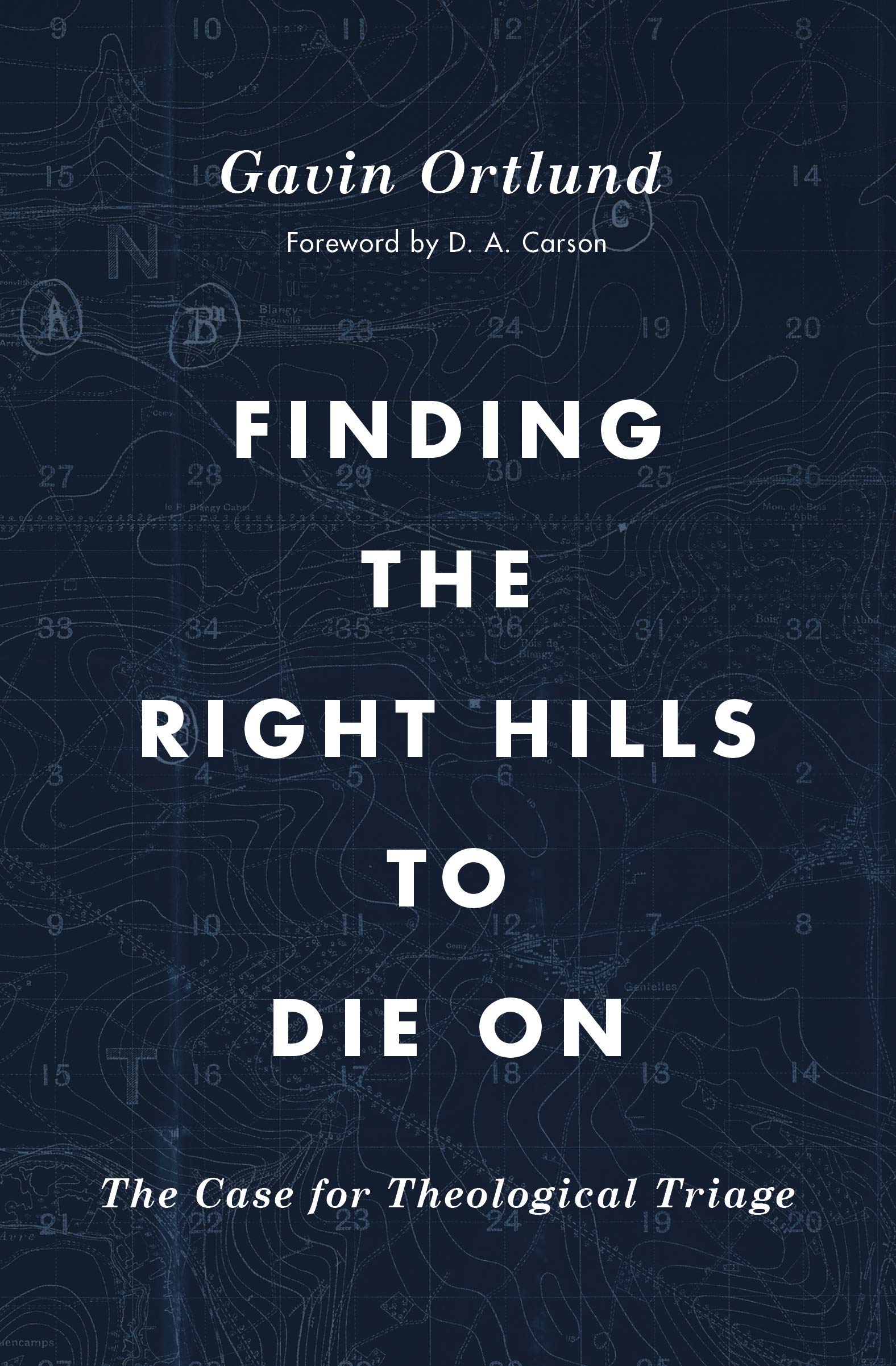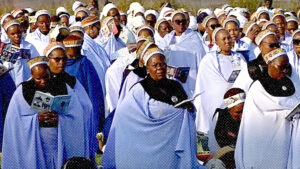Finding the Right Hills to Die On is about seeking a middle ground between those who want to fight about every little theological doctrine and those who are indifferent to theology. Gavin Ortlund accomplishes this by providing a useful method to assess which doctrines should be fought and even divided over. He calls this “Theological Triage,” a metaphor he adopts from Albert Mohler (p17).
Triage is a prioritising system which was often used by medics on the battlefield and is still used by doctors in emergency rooms. It determines who needs treatment first. Theological triage employs a similar system to rank various doctrines in the broader context of Christian theology. Thus, Ortlund acknowledges a practise which most Christians do already: ordering various doctrines based on their importance. This book provides a helpful framework with which to do that.
Can We Really Rank Doctrines?
You might be asking yourself if this is really possible. Are not all doctrines important? Is not the entire Bible inspired by God and useful for teaching, for reproof, for correcting, and for training in righteousness (2 Timothy 3:16-17)? You would be correct in asking these questions. And I assume Ortlund would answer each with, “Of course they are” (see p47–58). In the first part of his book he addresses two extremes: doctrinal sectarianism and doctrinal minimalism.
Discernment regarding which doctrines are more important than others is necessary. Without this, unnecessary division can arise
Addressing Doctrinal Sectarianism & Minimalism
In his chapter on doctrinal sectarianism, Ortlund acknowledges that everything in the Bible is important for the Christian. But everything is not of equal importance. Therefore, discernment regarding which doctrines are more important than others is necessary. Without this, division can arise over doctrines that should never have caused disunity.

Finding the Right Hills to Die On
Gavin Ortlund
Finding the Right Hills to Die On
Gavin Ortlund
In theology, just as in battle, some hills are worth dying on and others are not. But how do we know which ones? When should doctrine divide, and when should unity prevail?
Just as a medic on a battlefield treats the severely wounded first and then moves on to the less serious injuries, we must prioritise doctrine in order of importance. Pastor Gavin Ortlund implores us to cultivate humility as we prioritise doctrine into four ranks―essential, urgent, important, and unimportant―so that we will be as effective as possible at advancing the gospel in our time.
The opposite extreme, doctrinal minimalism, regards everything other than the gospel as secondary. Almost nothing is considered worth fighting for. Even worse than this is the mindset that says doctrine is unimportant, period. Instead of debating it, everyone must just love everyone else. Neither of these extremes are useful or helpful to Christians, the church or our mission.
We must know what is worth fighting about… as much as we need to know when doctrinal disagreement is insignificant
Finding the Theological Middle Ground
To navigate these extremes, Ortlund unpacks the concept of “Theological Triage.” With it he hopes to find a middle ground: a third option that enables peaceful and constructive dialogue between those who arrive at different theological conclusions.
Ortlund seeks to provide a position where theological disagreements are not frowned upon in the search of theological homogeneity. At the same time, individuals who have different doctrinal convictions can remain united because of Christ. But in order to do this, we need to order, or rank, doctrine. We must know what is worth fighting about, just as much as we need to know when doctrinal disagreement is insignificant.
4 Categories for Ordering Doctrines
Ortlund provides four categories into which we can sort various doctrines:
- First-rank doctrines are essential to the gospel itself.
- Second-rank doctrines are urgent for the health and practice of the church – such that they frequently cause Christians to separate at the level of local church, denomination, and/or ministry.
- Third-rank doctrines are important to Christian theology, but not enough to justify separation or division among Christians.
- Fourth-rank doctrines are unimportant to our gospel witness and ministry collaboration.
The four categories by which we can evaluate doctrines are essential, urgent, important, and unimportant.
Putting Theological Triage to Work
In the second part of Finding the Right Hills to Die On, Ortlund demonstrates this theological triage at work. He shows some doctrines that he would classify as primary, secondary and tertiary. But Ortlund is not aiming to persuade his readers to agree with him. His purpose is to provide us with a tool to do it for ourselves. That being said, Ortlund does not leave us guessing as to how and why he classifies certain doctrines as primary and others as not. Ortlund also provides four criteria to help readers rank doctrines into his four categories mentioned:
Ortlund is not aiming to persuade us to agree with him. His purpose is to provide us with a tool to do it for ourselves.
- How clear is the Bible on this doctrine?
- What is this doctrine’s importance to the gospel?
- How did the historical church treat this doctrine?
- What is this doctrine’s effect upon the church today?
For Ortlund, first-rank doctrines include the Trinity, virgin birth, and justification by faith alone. Second-rank doctrines include baptism, spiritual gifts, and women in ministry. Third-rank doctrines include creation and the nature of the millennium (Revelation 20). Fourth-rank doctrines include the subject of what musical instruments should be used in worship and the number of angels.
Theology Demands Humility
Is theological triage possible? What if I employ his theological triage and come to a different conclusion? Can we sincerely classify the various doctrines found within the Bible according to these neat categories? For doctrines tend to overlap. A nuanced understanding of any single doctrine affects a plethora of other doctrines. This is why Ortlund’s final chapter on humility is a crucial addendum. For the manner in which we disagree matters. We cannot abandon Christian character when we disagree over doctrine. While we can debate Ortlund’s categories and criteria, we cannot dismiss the need for humility.
We cannot abandon Christian character when we disagree over doctrine
Ortlund writes, “The greatest impediment to theological triage is not a lack of theological skill or savvy but a lack of humility. A lack of skill can simply be the occasion for growth and learning, but when someone approaches theological disagreement with a self-assured, haughty spirit that has only answers and no questions, conflict becomes virtually inevitable” (p147). It is perfectly fine if we reach different conclusions to Ortlund regarding the ordering or ranking of certain doctrines. But how we approach our Christian brothers and sisters with that knowledge must always embody Christian humility.
The Danger of Theological Pride
This is not just another book for Ortlund: it’s personal. In a brief autobiographical section he recounts the devastating effects of lacking theological triage in his own life. He also mourns the relationships lost to theological pride, because he failed to act in humility. I am sure many Christians have similar regrets. Therefore Finding the Right Hills to Die On is essential for all Christians, not merely pastors or theological students.
This book has reminded me that it is important to have strong convictions. But these should always be subject to Scripture and constantly reassessed by it. We must be sure a doctrine is worth fighting for before we engage in doctrinal debate. And if we do, then how we disagree with others has to glorify our Lord.
We must be sure a doctrine is worth fighting for before we engage in doctrinal debate.
Church history is a portrait of this. It represents men and women who were willing to lay down their lives for essential truths of the Christian faith. Thus there are doctrines worth fighting, even dying, for. Yet at the same time this book has encouraged me to be humble. Humility is not something that we demonstrate because its beneficiary deserves it, seeks it, or even asks for it. Humility is demonstrated because Christ was, is, and remains humble. Christ “humbled himself by becoming obedient to death—even death on a cross” (Philippians 2:8). Let us do likewise.









